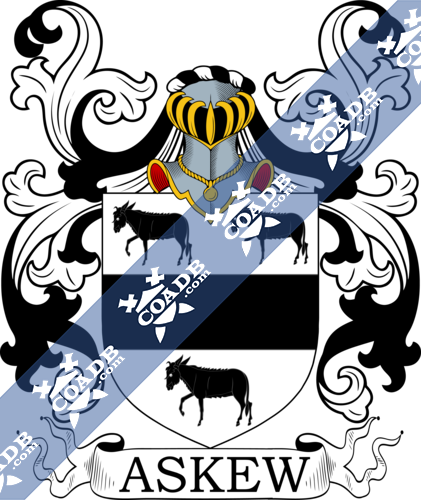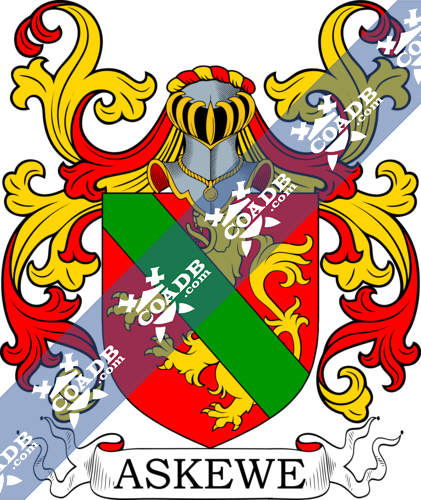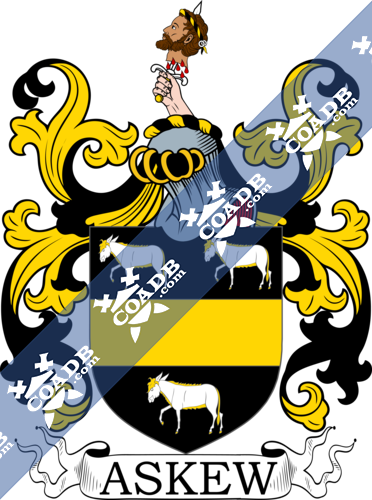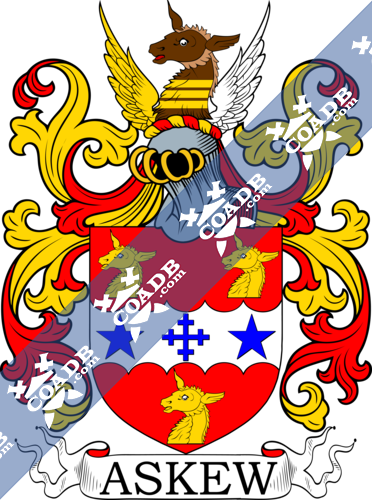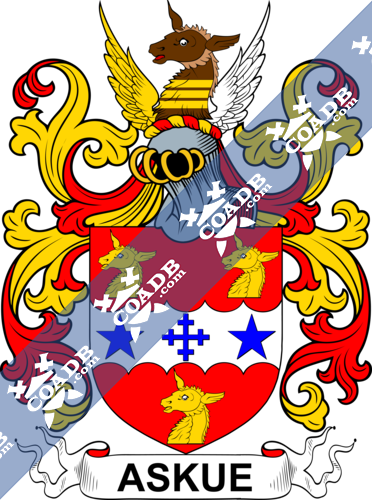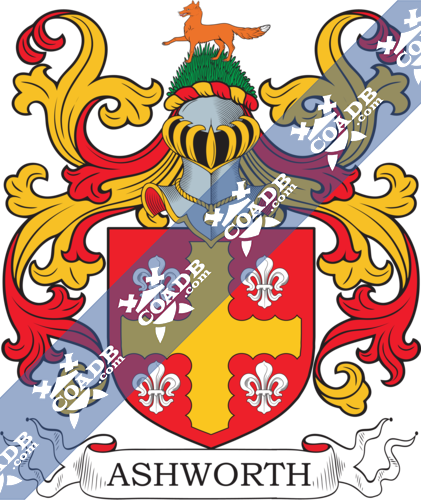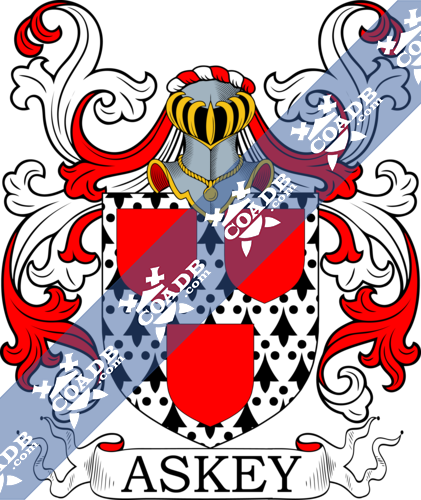Askew Family Crest, Coat of Arms and Name History
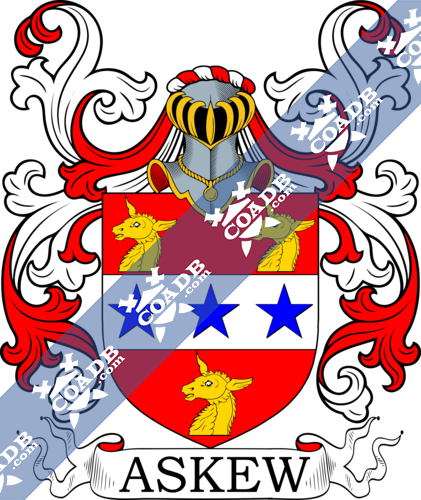
Askew Coat of Arms Gallery
Don’t know which Coat of Arms is yours?
We can do a genealogical research. Find out the exact history of your family!
Learn MoreASKEW
The name Askew is English, but thought to be Scandinavian in origin. It is not uncommon to find names, which for centuries has been claimed by the citizens of one country, often to only find their origins in another. In the case of the name Askew, it is believed to have come to England with the Norsemen during the time of the Viking invasions predating the Norman invasion of 1066. The name is considered topographical, as it is thought to have derived from the Old Norse compound word “eikiskogr”. The prefix “eiki” which translates to “oak”and the suffix “skogr” which translates to wood. The Anglicized form “Echescol” lends itself as the name of a region in North Riding in East Yorkshire.
Surnames in Europe prior to the mid-sixteenth century were largely reserved for the noble class. In the small villages which existed during these earlier times, residents found little need for surnames as everyone in these communities knew each other and a given name would usually suffice. However, as population growth and expansions of villages gave way to towns and cities, for practical purposes it became necessary to add a qualifier to a people’s names to distinguish them, one from another and to make the keeping of tax, census, and immigration records easier. Therefore, the noble’s practice of surnames gained in popularity.
In the creating of surnames for the masses, one person may have been identified by their given name plus their occupation while another may have been identified by their given name and one of their parent’s names. There was an endless supply from which surnames could be formed, in addition to the use of patriarchal/matriarchal names or reference to the individuals occupation, there were things such as defining physical traits, a familiar geographical location or a topographical landmark found near the individuals home or birthplace, the name of the village in which the person lived, and so much more.
There are multiple variations of the spelling of the surname including but not limited to; Askew; Aiscough; Ayscoghe; Aske; Asker; and Ayscough among others. The variation in spelling of both given and surnames during this time period can be attributed to a lack of continuity regarding guidelines for spelling which was compounded by the diversity of languages in use in European countries at this time.
The earliest record of any variation of this surname is that of William de Aykescoghe which appears in the Lancashire tax rolls dated 1366. The tax rolls were a series of financial records kept by the English Treasury by order of King Edward III, the oldest dating back seven hundred years to the 12th century. They hold the distinction of being the oldest consecutive set of records detailing English governance in the United Kingdom.
After the discovery of America and the addition to the British Commonwealth of countries such as Canada, Australia, and New Zealand, it was not long before people began to immigrate to these outlying areas. Some of the first recorded immigrants to America bearing the surname was John Askew who arrived in or around 1623 and settled in Cambridge, Massachusetts. Thomas Askew landed and settled in Virginia in 1635 and John Askew arrived and settled in Maryland in 1641.
Robert Askew was an early settler to Canada, landing and settling in St. John’s, Newfoundland in 1820. William Askew was an early settler to Australia, landing and settling in New South Wales in 1809. William and Elizabeth Askew and their children, John and Thomas, were early settlers to New Zealand, landing and settling in Nelson in 1843.
Worldwide, the highest concentration of people with the surname Askew are found in the United Kingdom, New Zealand, Australia, United States, and Canada. By state, the largest percentile of those with the surname Askew live in Alabama, Georgia, North Carolina, Tennessee, and Virginia.
There are many persons of note who bear the surname Askew. Sir Henry Askew, a British Army officer who attained the rank of lieutenant-general, fought at the Battle of Waterloo in the Napoleonic Wars. He received the Waterloo Medal for wounds he sustained while participating in the Battle of Quatre Bras. In 1821, Askew was knighted and received his rank of lieutenant-general in 1837.
Blazons & Genealogy Notes
1) (Greymanes, co. Cumberland, afterwards of Newcastle-upon-Tyne, and Redheugh, co. Durham, and Pallinsburn, co. Northumberland). Motto (over the point of the sword)—Fac et spera. Sa. a fesse or, betw. three asses pass. ar. maned and hoofed of the second. Crest—A naked arm ppr. grasping a sword ar. hilt and pomel or, enfiled with a Saracen’s head couped ppr. wreathed about the temples or and sa. blood issuing from the neck of the first.
2) (Lord Mayor of London, 1533). Gu. on a fesse ar. betw. three asses’ heads couped or, as many mullets az.
3) (London). Gu. on a fesse engr. ar. betw. three asses’ heads couped or, a cross crosslet and two stars az. Crest—An ass’s head ppr. gorged with three bars or, betw. two wings or and ar.
4) Ar. a fesse betw. three asses pass. sa.
5) Gu. a lion ramp. or, oppressed with a bend vert.

